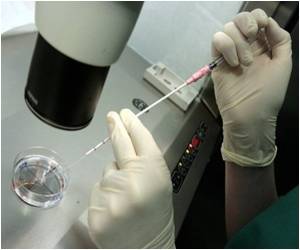The news SARS-like virus, which claimed the lives of 22 people worldwide in less than a year, is now patented by foreign drug companies, thereby slowing down the diagnosis process.

He told diplomats gathered in Geneva for the World Health Assembly, the UN health agency's decision-making body, that the coronavirus that first emerged last June had been "sent out of the country."
"It was patented, and contracts were signed with vaccine companies and anti-viral drug companies" which now need to give their approval every time another lab wants to use the virus, he said.
"I think strongly that the delay in the development of .... diagnostic procedures is related to the patenting of the virus," Memish said.
WHO chief Margaret Chan expressed outrage at the information.
"Why would your scientists send specimens out to other laboratories on a bilateral manner and allow other people to take intellectual property right on new disease?" she asked.
Advertisement
"I will follow it up. I will look at the legal implications together with the Kingdom of Saudi Arabia. No IP (intellectual property) should stand in the way of you, the countries of the world, to protect your people," she told the delegates to thundering applause.
Saudi Arabia by far counts the most cases, with 30 confirmed infections and 17 fatalities, while cases have also been detected in Jordan, Qatar, Tunisia, the United Arab Emirates, Germany, Britain and France.
The virus is a cousin of Severe Acute Respiratory Syndrome (SARS), which triggered a scare 10 years ago when it erupted in east Asia, leaping to humans from animal hosts and eventually killing some 800 people.
Like SARS, the new virus appears to cause an infection deep in the lungs, with patients suffering from a temperature, cough and breathing difficulty, but it differs from SARS in that it also causes rapid kidney failure.
Memish stressed Thursday that a lot of uncertainty remains around how the virus spreads and what symptoms to look for, pointing out that some patients have instead of respiratory difficulties shown signs like diarrhoea and vomiting.
He also said diagnoses were problematic and in some cases tests needed to be performed two or even three times.
Source-AFP











